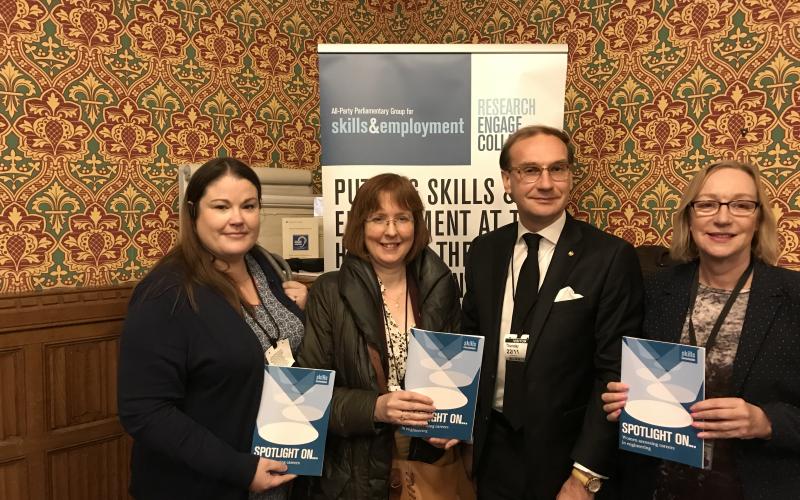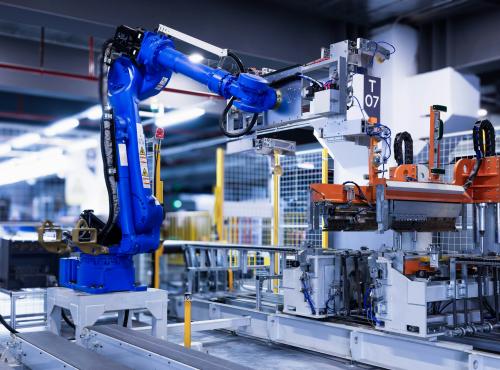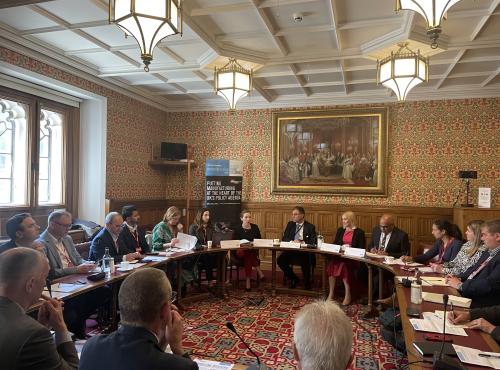APMG hosts roundtable with APGSE on Women in Engineering and Manufacturing
On Thursday 22nd November, the All-Party Parliamentary Manufacturing Group (APMG) and the All-Party Parliamentary Group for Skills & Employment (APGSE) hosted a roundtable following up on the Skills Commission’s report - A spotlight on: women in engineering.
The event brought together women engineers, leading manufacturers, skills providers and policy makers to discuss the how business and government can collaborate to increase the number of women working in engineering and manufacturing.
Baroness Garden of Frognal introduced the policy area, drawing from her frontbench experience in the House of Lords and 20 years of experience at City and Guilds.
Baroness Garden then introduced the roundtable’s chair, Gill Furniss MP, the Shadow Minister for Steel, Postal Affairs and Consumer Protection. Initial contributions were shared by Professor Sandra McNally, Director of the Education and Skills Programme at CEP and Co-Chair of the report, Susan Henry, Director of Calibration Development at Cummins and Mark Lumsdon Taylor, Deputy Group Principal of Hadlow College Group.
The discussion
Following the initial contributions, the meeting featured a wide-ranging discussion covering an array of topics including increasing engagement with young women and girls, and suggestions for how government could coordinate the huge amount of initiatives in this field that are running in parallel and even replicating one another.
“The Cinderella sector”
The ‘Cinderella sector’ has become an increasingly ubiquitous term in Further Education, and this formed the initial basis for a discussion about the challenges being faced by colleges. The discussion also highlighted the significant role universities and schools must play in sparking a cultural shift in perceptions. The point was also made that it is unsustainable for FE to be expected to make up for deficiencies in other parts of the education system, particularly in the context of significant real-term funding cuts.
Alternative routes into engineering and manufacturing were also discussed, with members stressing the potential value of Higher Apprenticeships and T Levels in addressing gender inequalities. Improvements in uptakes of Degree Apprenticeships is currently being researched by our sister commission the Higher Education Commission and a policy report will be released in late January.
“It’s not for you my child”
A large part of the discussion focused around the problematic preconceptions which are held of the manufacturing and engineering sectors, especially in relation to gender. Members noted that a successful programme would require engagement with girls from a young age, with one – a primary school governor – highlighting that there are girls in schools who actively want to engage, but cannot find any suitable schemes.
More encouragingly, a number of members pointed to positive moves – both in publishing and popular culture – which have presented women as equally capable, and often more capable, than male counterparts when engaging in STEM related activities.
“Do the same, get the same”
The key takeaway was the need for clear action to ensure that the important findings of the report achieve as much impact as possible. We are determined to have a tangible impact on the UK’s future women engineers and manufacturers. We believe that bringing manufacturers, education providers, and policy makers together is the first step in this longer process.
So far, the Spotlight series has provided reports for the World Federation of Engineering Conference, led to Parliamentary questions and our Head of Education and Skills, Simon Kelleher, appearing before the Intergenerational Fairness Committee in the House of Lords. Spotlight reports have also formed the basis for briefing documents provided to those appearing before other select committees in both houses.
In the following months we will:
- Table Parliamentary questions from inquiry chairs and group members
- Write to government departments, including the Department for Business, Energy & Industrial Strategy and Department for Education
- Continue to approach organisations and encourage greater coordination, in line with the report’s recommendations.






